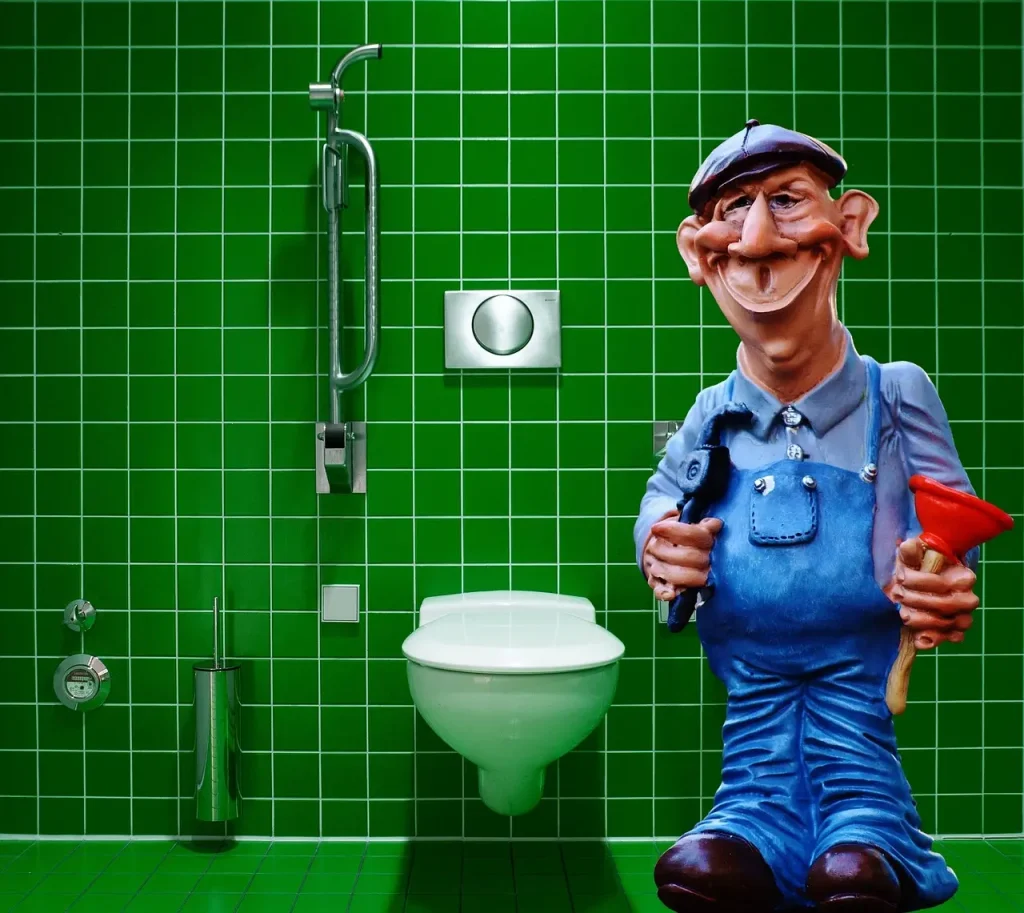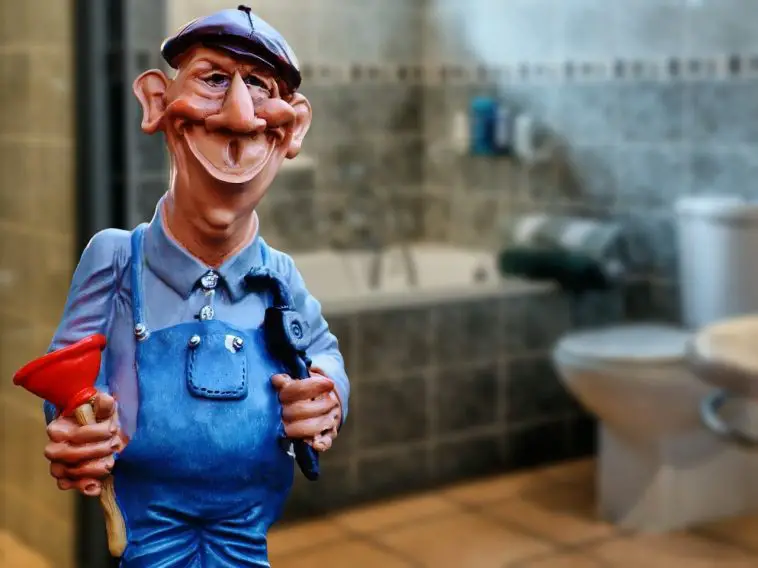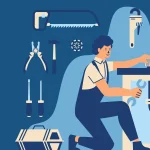Plumbing emergencies tend to occur at the worst times, resulting in significant damage as well as financial setbacks. Whether it’s a burst pipe, a toilet that won’t stop overflowing, or a dripping water heater, it can quickly become a nightmare for any homeowner. The positive aspect is that numerous emergencies like these can be avoided by just performing some regular upkeep and taking a few proactive measures.
With proper care, your plumbing system will be able to avoid expensive repairs and make sure the water supply and drainage systems in your home work properly.
Regularly Check for Leaks
The best way to avoid major plumbing disasters is to check your home on a regular basis for leaks. Small leaks in pipes, faucets, or under sinks can eventually cause water damage and mold.
Be alert for water spots on the walls and ceiling, moldy smells, and sudden increases in the water bill. Small leak prevention saves from greater causes later on. Be wary of hidden leaks behind walls and on floors; these will have to be found with specialized equipment.
Keep Your Drains Clear
Clogged drains are one of the most common problems with which, if left untreated, cause a serious plumbing problem. Avoid grease, ground coffee, and food particles passing into the kitchen sink. Fit screens over the bathroom sinks and showers to prevent hair and any other objects going into the drain. If there are some slow-flushing drains, try plunging or snaking in an effort to take out the clogs before they create bigger problems.
Also avoid using a lot of chemical drain cleaner in opening up the clogs since these will damage your pipes in the long run. It pays to take time periodically and pour hot water down the drain while mixing baking soda and vinegar as a concoction to build resistance against the buildups.

Know the Location of Your Shutoff Valves
In the event of a plumbing emergency such as a burst pipe or major leak, knowing where your main water shutoff valve is located can prevent extensive water damage. Take time to find your shutoff valve and ensure the household members familiarize themselves on how to make use of the valve.
Once more, be aware of other shut-off valves: there are sink faucets, toilets, and washing machines that have their own cut-off to stop water immediately in a specific area. This is crucial, particularly in two-story houses and higher, where a leak on the upper level could quickly affect lower floors.
Prevent Frozen Pipes
Icy pipes in the winter can lead to significant plumbing issues manifested as ruptured pipes and water destruction. Wrap any unprotected pipes in unheated spaces, such as basements, attics, and crawl spaces. Allow faucets to drip a bit in the coldest weather, and maintain a consistent temperature in the house, especially when you leave or go to sleep.
If you suspect a pipe is frozen, take immediate action by carefully warming that section, perhaps with a hair dryer, to avoid the risk of the pipe bursting. You may also open cabinet doors to enable warm air to flow around the pipes and aid in preventing freezing.
Schedule Regular Water Heater Maintenance
A malfunctioning water heater will not only create flooding issues but also interrupt your home’s hot water supply. Flushing sediment accumulation from your water heaters annually is advisable, as it can affect efficiency and longevity. Inspect the unit for any leaks, corrosion, and unusual sounds.
Substitute if older than 10-15 years. This minor upkeep can greatly contribute to ensuring that water heaters function safely and effectively. If you own a tankless water heater, it’s important to descale it periodically; this will help prevent mineral accumulation that ensures its proper functioning.
Check for High Water Pressure
You might think that strong water pressure is one of those things that are never bad; instead, very high water pressure can actually stress your pipes too much, therefore causing leaks and bursts.
Check your home’s water pressure with a pressure gauge to make sure it’s within the recommended range of 40-60 psi. If the pressure is too high, consider installing a pressure regulator to protect your plumbing system from damage. Constantly high water pressure also serves to wear out appliances and reduces the life of dishwashers and washing machines.
Avoid Flushing Non-Flushable Items
Toilets are designed to handle human waste and toilet paper—nothing else. Flushing baby wipes, feminine hygiene products, cotton swabs, and even paper towels create blockages and backflows. Not everything marketed as “flushable” actually gets broken down in the system.
For that reason, consideration must be given that all these non-flushable items go into the trash and never be flushed. A waste container beside the toilets may be an effective way of ensuring proper waste disposal particularly when one has children.
Be Cautious with DIY Plumbing Repairs
While a few simple plumbing repairs could be done without requiring any real experience, the rest require expertise. Further complications and mistakes in trying complex repairs with some half-baked knowledge or faulty tools may well increase the troubles.
When in doubt, always try to find yourself a licensed plumber so as not to worsen the situation. While watching videos or reading tutorial guides is adequate for minor repair jobs, for major installations or repairs, do leave it in the hands of experts.
Schedule Professional Plumbing Inspections
Many of the problems can be nipped in the bud by regular inspections that a professional plumbing company does. They would check the pipe for hidden leakage, rusting amongst other damages that may equally not be noticeable to a home occupant. In this line, scheduling routine regular inspections annually by a plumber shall keep the plumbing in excellent condition.
Thus, such problems are likely noticed and fixed early before turning out to be outrageously costly to manage. Inspections can be a real source of confidence, especially when buying an older home where plumbing systems may or may not have been maintained properly.




